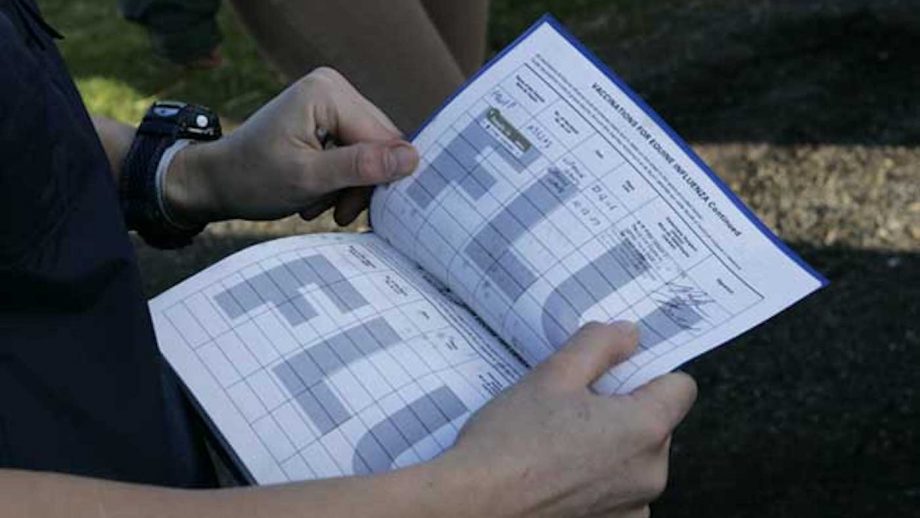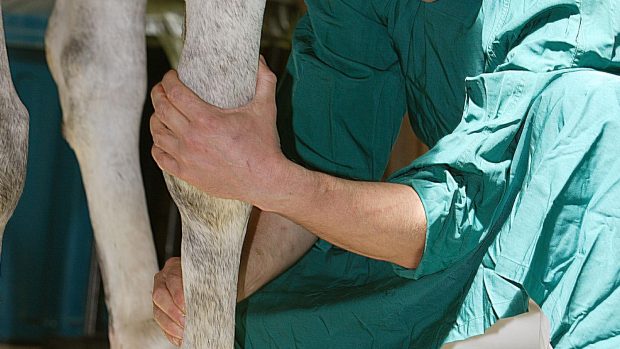Three separate outbreaks of equine flu have been confirmed in the UK.
Horses in Essex, Cheshire and Derbyshire have been affected this month, and more outbreaks have been reported in Belgium, France and Germany.
Dr Adam Rash, research scientist in the equine influenza surveillance team at AHT told H&H: “In all three outbreaks in the UK, only unvaccinated horses have tested positive for the virus so far, but there have been reports of clinical signs in some vaccinated horses.”
Richard Newton, director of epidemiology and disease surveillance at the AHT, told H&H although the number of outbreaks is “small at the moment”, they have occurred in a short period.
“To put the numbers in context we saw three outbreaks throughout 2018 and we have seen three in a week in 2019. It is true that this may go as quickly as it appeared but we have to be alert and warn folks this may signal that flu is picking up in horses and we rely on owners and their vets to act as the eyes and ears of flu surveillance for us,” said Dr Newton.
Early work carried out at the Animal Health Trust suggests the virus causing the Essex outbreak belongs to the ‘Florida clade 1’ strain.
“This clade of virus has not been the cause of major outbreaks in Europe before, although we have seen it in the UK in the past. Florida clade 1 viruses are usually found in North America, however they were responsible for extensive outbreaks in South America last year,” said Dr Rash.
While there are several signs of flu in horses, those affected may only show one or two of them. Signs include:
- Harsh, dry or hacking cough
- Fever (>38.5°C)
- Lethargy / poor performance
- Loss of appetite
- Nasal discharge
Owners should seek veterinary advice if they suspect there is flu on the yard.
“Call your vet and they can take a swab sample from your horse’s nose and a blood sample, to confirm if your horse has flu. If your horse has been sick for a while before you call the vet, it can be harder to diagnose your horse correctly. Swabs are best taken early on in the course of the infection,” said Dr Rash.
Samples can be tested for free through the AHT’s equine influenza surveillance scheme, support by the Horserace Betting Levy Board.
“If your vet hasn’t signed up to our scheme, ask them to contact us. If you suspect another horse on your yard may also have had flu-like signs, they can also be sampled through this scheme,” said Dr Rash.
“Making a quick diagnosis helps to ensure the best supportive care is given to your horse and that the correct preventative measures are put in place to stop the virus spreading. Not only will you get a diagnosis but you are also helping to monitor equine influenza activity in the UK. This allows us to study how the virus is evolving and helps us to make sure the right strains are recommended for inclusion in future horse flu vaccines.

Horse & Hound’s definitive guide to equine vaccinations

Equine flu: what all owners need to know to protect their horses

Subscribe to Horse & Hound this spring for great savings
“Ultimately this means that the most effective and up-to-date vaccines are produced to protect your horse from equine flu.”
Dr Rash said if flu is confirmed, measures to prevent its spread will be yard-specific, and developed by the vet, but will include:
- Isolation of infected horses. Infected horses will spread the virus in respiratory droplets, through coughing, and can spread the virus for up to 10 days. They must be isolated until the vet advises they are no longer infected.
- All horse movements on and off the yard should be stopped.
- Monitor all horses on the yard for clinical signs and record their rectal temperature daily, it should be less than 38.5˚C. A rise in temperature can be an early sign of an infection.
- Booster vaccinating all in-contact horses, even if they are not yet due their annual booster, has been shown to provide horses with even more protection against flu.
For all the latest news analysis, competition reports, interviews, features and much more, don’t miss Horse & Hound magazine, on sale every Thursday.





